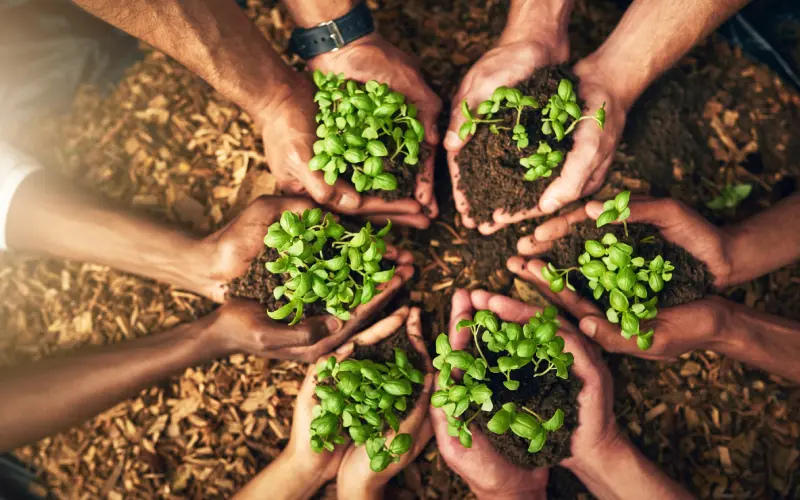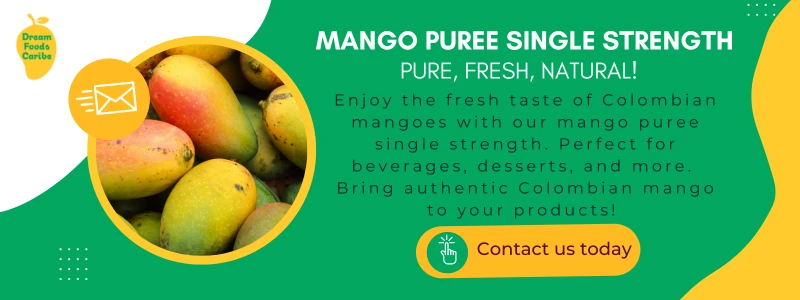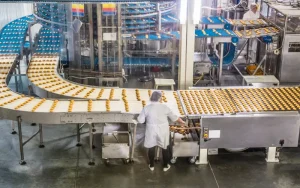It is becoming more and more common to hear about organic farming. And there is a reason why this is happening. The world is increasingly aware of the importance of health and the environment. As such, it is critical for food companies to ensure that their suppliers follow internal policies that are aligned with the organizational culture of their operations.
One of the key aspects in this regard is the choice of sustainable agricultural practices. Among these is organic farming.
Organic farming and policy compliance
This practice is defined by the use of methods that minimize environmental impact. Therefore, it promotes biodiversity and seeks the preservation of natural resources. In the cultivation of fruit for purée production, the process involves:
- Avoiding the use of synthetic pesticides and fertilizers.
- Adopting soil management practices that improve soil health and fertility.
For this reason, it is essential to ensure the absence of genetically modified organisms (GMOs) and to respect the natural growth cycles of plants (Brook & Johnson, 2022).
Its importance in the production of fruit purée
This process plays a vital role in the production of fruit purée because of its benefits. For example, organic products tend to have better quality, taste, and aroma (Infoalimentos, n.d.).
On the other hand, avoiding the use of pesticides and chemical fertilizers promotes food safety and consumer health. As a result, it reduces the risks of toxic residues in food.
In addition, organic farming promotes sustainable practices that preserve natural resources, such as soil and water.
Precautions recommended by the U.S. government
When importing agricultural inputs, especially those intended for food manufacturing, the U.S. government establishes regulations. Some of them are (USDA, 2024):
- Organic certification: it is required to have a certification that demonstrates compliance with specific standards for ecological or organic agriculture. Such standards are defined and approved by the United States Department of Agriculture (USDA).
- Food safety standards: imported agricultural inputs must comply with the regulations established by the FDA regarding food safety. This includes compliance with hygiene standards, pesticide control, etc.
- Product registration and approval: some agricultural inputs may require specific registration or approval by the competent authorities.
- Compliance with labeling regulations: imported agricultural products must comply with the regulations established by the FDA and the USDA.
- Compliance with good agricultural practice standards: foreign suppliers must follow good agricultural practices to ensure the quality and safety of products from production to marketing.
- Border inspections: imported agricultural products are subject to inspections at points of entry into the United States.
Undoubtedly, it is crucial that foreign suppliers follow these regulations. Thus, they avoid legal problems and ensure consumer confidence in the quality and origin of the products.
Suppliers that comply with organic farming parameters
Having suppliers that comply with the parameters is essential for two main reasons (Raszap et al., 2023):
- Organic farming can offer several nutritional benefits compared to food grown using conventional methods. This is due to the use of soils that avoid being contaminated with pesticide residues.
- By opting for suppliers committed to sustainable practices, companies contribute to:
- The preservation of the environment.
- Supporting local farming communities.
Organic farming, industry and production
As you may have seen, choosing suppliers that follow such farming practices is essential. It ensures the quality and sustainability of the supply chain in the food industry. Then, by adopting responsible measures in food production, companies not only comply with regulatory standards. They also promote the health and well-being of consumers.
Referencias
- A1 Worldwide Logistics. (2022, April 28). Importing Agricultural Goods into the U.S.
- Archer, L., Ransom, B., & Coley, M. (2017). Organic farming. UC Division of Agriculture and Natural Resources.
- Brook, L., & Johnson, A. (2022, October 27). New Report: Unlocking the Potential of Organic Agriculture. NRDC.
- EPA. (2023, November 16). Organic Farming.
- Infoalimentos. (n.d.). Agricultura orgánica.
- Raszap, S., Carlson A., & Spalding, A. (2023, November 14). Rising Consumer Demand Reshapes Landscape for U.S. Organic Farmers. USDA.
- USDA. (2024, February 6). Imports and Exports.







